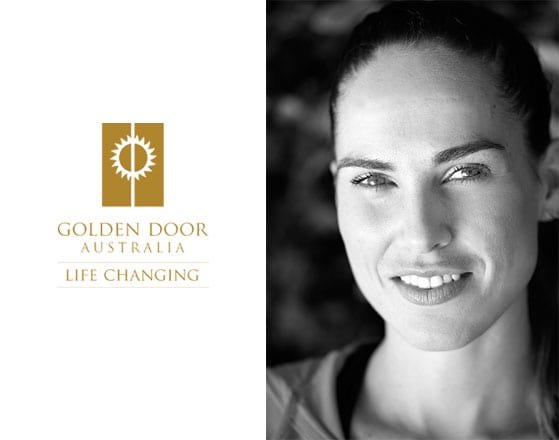In a 2013 report by the Australian Psychological Society, around 75% of Australian workers reported stress was having some kind of an impact in their lives. While Australians tend to rank highly in most other aspects of living, work/life balance is something we consistently put on the back burner. But if it’s something that seems so important to us, why do we allow this to be the case?
People often talk about finding ‘balance’ only after they have realised there is a strong disconnect between how they are spending their time and how they want to be spending it. There are some very telling signs when our life balance is out of whack and often these present in the form of injury and illness in the body or show up as a feeling of overwhelm or anxiety in the mind. The good news is, after recognising a disconnect, there are a few simple steps that can help get you on track to find a more rewarding work/life balance.
1. It’s OK to take a break
What are the consequences of leaving work at work vs. not? Ask yourself, if I work 100 hours every week for the next 50 years, what other things am I going to miss out on and how is my body going to handle that? We need to take responsibility and know when to nourish ourselves for sustainability. By increasing your workload and reducing time for the things you enjoy, what could you potentially be missing?
2. Movement
Physical activity increases the production of happy hormones, also known as as endorphins. It decreases the stress hormone, cortisol giving your mood a nice, natural boost. Movement – whether it be hitting the gym, a dance class or walking beside the ocean – can also act as a distraction from anxious thoughts as you give yourself an opportunity to focus on the activity rather than what might be causing you stress. Make time to find something you love and you will discover it helps to clear your mind and give fresh perspective towards managing stressful problems.
3. Meditate
Meditation acts as a natural medicine that allows the immune system to build by slowing the production of cortisol. Regular meditators find they can easily return to a calm, relaxed state as stress begins to set in. Meditation is a practice, which takes effort. And like any skill we aim to learn, we must start as a beginner. Don’t expect to be an expert immediately and be gentle on yourself while practicing. Clearing your mind through meditation allows you to let go of both the past and your expectation of the future to stay engaged in your present moment.
4. Get adequate rest
Sleep is one of the most important natural stress reducers. Lack of sleep can cause an increase in the production of cortisol, which makes it more difficult to tackle daily life stressors. Without adequate sleep, we can easily become agitated and irritable, making stress levels soar. You can promote a better nights sleep by introducing bedtime routines that tell your brain when it’s time to fall asleep. Turning of all technology half an hour before bed, having a warm bath in the evening, or practicing meditation as you lie down can help.
5. Laugh
It’s said laughter is the best medicine and for good reason! 98% of Australians agree that laughter can play a huge role in helping to reduce stress, partly due to the release of endorphins when we laugh. Not only does laughter stimulate circulation and muscle relaxation, in doing so it also reduces the production of cortisol. Even better, our muscles don’t know the difference between real laughter and when we are putting it on… so if all else fails, fake it ’til you make it!
Becoming consumed with anything that takes all or too much time, energy and focus demonstrates an imbalance that can create major stress. These days there are a multitude of illnesses that can be associated back to stress including, anxiety, depression, hypertension, and panic attacks. It’s important to find a balance that works for you and introduce it into your daily routine, whether is be taking in a deep breath of fresh air, finding a new hobby, stepping outside with your shoes off from time to time or laughing with the people you love.
By Jaye Hoelscher
About Jaye Hoelscher
Jaye Hoelscher is the Program Manager at Golden Door Health Retreat & Spa, Elysia. Renowned for it’s life-changing philosophies of balancing mind, body and spirit, Jaye has been absorbing herself in the Golden Door way of life since 2009. She has discovered the key to managing her own work and personal life, and now she is helping guests of Golden Door get the balance back in their lives.
Set in the peaceful surroundings of the Hunter Valley’s rolling hills, just two and a half hours from the hustle and bustle of Sydney, Golden Door Health Retreat & Spa, Elysia, is an enclave of serenity where guests are encouraged to disconnect from devices in order to regain some of the passion, energy, creativity and clarity that often gets diminished or lost through the stresses of everyday life.
The Golden Door Health Retreat & Spa, Elysia has a passion for holistic wellness, believing that balancing one’s mind, body and spirit will achieve lifelong wellness. With 74 stylish villas, this property is the only purpose built Health Retreat in Australia. They are leaders in their industry providing their guests a fresh new lease on life. Elysia offers a range of all-inclusive health and wellness programs, which are led by renowned professionals and developed to motivate change and inspire lasting results.
For more information on Golden Door Health Retreat & Spa Elysia visit www.goldendoor.com.au









